Over the past several years, rideshare services such as Lyft and Uber have exploded in popularity across the sunshine state. In response, Florida’s legislature has passed several laws that impose insurance requirements on and mandate safety features for rideshare vehicles to protect passengers. However, these laws do not offer optimal protection to passengers in every circumstance.
Required Insurance
Florida Statute Section 627.7483 spells out the insurance requirements for Transportation Network Companies (“TNC”) such as Uber and Lyft. When the TNC driver is logged on to the digital network but is not transporting a rideshare passenger, the insurance coverage requirements are:
$10,000 for death and bodily injury per person,
$20,000 for death and bodily injury per incident,
$10,000 for property damage,
Personal injury protection benefits, and
Uninsured and underinsured vehicle coverage (“UM/UIM”).
There is a twist to the statutory requirement for uninsured and underinsured motorist coverage, which compensates victims for their injuries caused by owners or operators of uninsured motor vehicles. Pursuant to Section 627.727(1), uninsured and underinsured vehicle coverage can be rejected by the “insured named in the policy” on behalf of all insureds under the policy by executing a written rejection. So, UN/UIM is not required to be carried by a rideshare operator or company, but can be rejected by the insured named in the policy, which is usually the rideshare company. Lyft routinely rejects UM/UIM coverage altogether while Uber select limits lower than the required BI limits . The upshot of these laws and policies is that both TNC drivers and their passengers are financially vulnerable when they suffer injuries caused by the negligence of an uninsured/underinsured driver.
A TNC driver can protect himself from these risks by purchasing UM/UIM insurance, which should have an endorsement so that it covers him during the transport of rideshare passengers. The rideshare passenger can apply the UM/UIM coverage for any vehicle for which he is an insured or insured family member to compensate for injuries sustained in rideshare accidents caused by un/underinsured drivers, pursuant to Florida Statute Section 627.727(9)(c).
Other Laws Affecting Safety
A new Florida statute that became effective on January 1, 2022, Section 627.7483, requires rental and rideshare vehicle to be current on safety recalls . The passage of this law was prompted by studies that found large numbers of rideshare vehicles with unserviced recalls listed on the rideshare companies’ apps.
Recovering for Your Injuries
In a personal injury lawsuit, a successful plaintiff may collect economic damages as well as non-economic damages. Economic damages include costs of medical treatment of injuries, lost wages, loss of future income, and property damage. Non-economic damages include pain and suffering, loss of enjoyment of life, and, loss of consortium for the injured party’s spouse. If the accident was the result of egregious or intentional behavior of the at-fault party, the court may also award the plaintiff punitive damages.
The same damages are available for victims of rideshare accidents as for victims of other automobile accidents. Florida’s personal injury protection scheme requires each driver’s insurer to provide a personal injury protection policy to pay up to $10,000 for personal injuries sustained by the driver and/or his passengers. An injured party must claim against this policy first as a source of payment for treatment of his injuries and lost wages. He may collect from the at-fault driver’s insurance company for damage sustained by his vehicle in the accident.
Limitation on Damages for Motor Vehicle Accidents
While an at fault driver may have resources to pay for his victim’s injuries far in excess of the $10,000 personal injury protection limits, Florida law limits an injured motorist’s right to sue in these circumstances. Florida law prohibits injured drivers and passengers to sue an at-fault driver for non-catastrophic injuries. The permanency requirement of F.S. section 627.737 provides that a driver may sue to recover damages sustained in a car accident (both economic and non-economic) only if the plaintiff has suffered death or serious bodily injury (such as significant scarring and permanent physical impairment). Importantly, this prohibition applies to motor vehicle accidents, but not to motorcycle accidents.
Proving Your Case
A plaintiff injured in a car accident who meets the permanency requirement of F.S. 627.737 has the burden to show by the greater weight of the evidence that the at-fault driver was negligent in order to recover for his injuries.
Most motor vehicle accident cases are grounded in the negligence theory of liability. A successful negligence plaintiff must show that:
A. The defendant driver owed him a duty of care.
B. The defendant driver breached this duty of care.
C. The defendant driver’s breach caused the plaintiff to suffer injury.
D. The plaintiff’s injuries resulted in compensable damages (in Florida, this means a significant injury or death).
In order to prevail at trial, you must prove the elements above by a preponderance of the evidence (in other words, show that it is more likely than not that the Defendant was negligent). You may need to hire experts, such as medical doctors, to establish the extent of your injuries and the present and future costs of treatment. You will also need to gather evidence concerning the Defendant's allegedly negligent action, which may involve taking statements from him under oath (depositions) or getting physical custody of evidence (through the use subpoenas).
Summary
As you can see, getting compensated for rideshare accidents can be complicated. . Florida Accident Lawyer John Clarke represents victims of rideshare and other hired vehicle accidents deal with insurance issues and receive compensation for their injuries.

